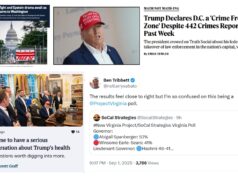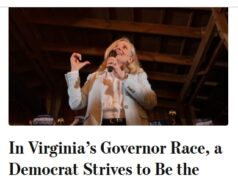
1. Their message system is utterly abysmal:
For years now we have been suffering Facebook’s chat system, perhaps the worst in the industry. You can’t maintain a conversation without you or your buddy being logged off. Sentences, entire paragraphs don’t get delivered. I can’t count the times I’ve wanted to punch the screen and given up. Everyone else I’ve spoken to has had the same experience.
But now, with the merging of chat, the message box and their new mail address, things are even worse. During the last few weeks, some messages have been lost. Gone. They show up in the notifications panel, but they are nowhere to be found in the actual inbox. This problem is actually the number one problem in their Help Center’s messaging section, labeled as “known bug.” How can this be a known bug and not be fixed?
So true, Facebook messaging is absolute, abysmal, antiquated crap. Every time I hear that dreaded Facebook “ping,” indicating that someone’s messaging me on that piece-of-utter-garbage system, I cringe. Why, I wonder, can’t they use an instant messaging system that actually works, such as AIM or Gchat? Why do I have to put up with the far-far-far inferior technology (e.g., doesn’t automatically save your chats) when there’s so much better available? No thanks.
2. Customer Support? WHAT Customer Support?
…Facebook support pages are a joke, and critical issues like losing messages redirect you to a feedback form. I’m still waiting for an answer to my request, sent days ago. If you want to have people depending on you, you need to provide instant feedback. Not a black hole and the promise that your problem may get fixed one day.
This is so true. A few weeks ago, my wife’s Facebook account was hacked. That, in itself, is not an uncommon occurrence; in fact, it happens all the time on Facebook. So, she contacted Facebook customer support and…hahahahahah, yeah right! Actually, she tried desperately, as did friends of her – including not one but two professional computer techies – to find some way to un-hack her account, get some help, whatever. All to no avail. Today, several weeks later, my wife’s Facebook account remains hacked, although it’s helpfully (not!) “frozen,” so that it’s still sitting out there, but completely unusable, and with the hacker’s change to her email address still showing.
The fact that Facebook hasn’t addressed my wife’s problem with THEIR SERVICE (or yours, if it happens to you – and it can!) within days (hours?) is bad enough, but their COMPLETE lack of any response – intelligent, helpful, or otherwise – in and of itself disqualifies Facebook from being a serious service that we can rely on. Absolute crap.
Other than the technical issues with Facebook, which as far as I’m concerned are near-fatal, I believe there are other serious, systemic problems with Facebook that almost completely compromise its utility for politics. For more on that, see the “flip.”
One problem is that while it’s extremely easy to “like” a page, it really doesn’t mean much, as the level of commitment (salience? stickiness? level of social cohesion/ties?) is close to zero. Which is why “liking” a political action page of whatever sort can rack up impressive numbers (e.g., the Coffee Party has 362,000 people who “like” it), but does that translate into effective political power, action on the ground, donations, or votes at the polls on election day?
It’s an interesting subject for study and debate, in my opinion. On the one hand, we’ve seen so-called “twitter revolutions” in the Middle East, using social media like Twitter and Facebook to communicate in otherwise repressive societies. In my view, there’s little-to-no doubt that social media as a whole, combined with satellite TV and cell phones and other communications media, have played a significant role in Middle East uprisings the past few months. However, in the end, the question is whether the uprisings could or would have happened without social media in general, or Facebook per se. That’s a question I don’t have the answer to.
What about here in the United States? I’ve certainly seen plenty of political movements that have employed internet communications and social networking technologies, but how effective have they been? Hard to say, but I’d point out that in 2003/2004, the Wesley Clark and Howard Dean movements both relied heavily on face-to-face “Meetups,” in addition to blogs and instant messaging and Yahoo groups (Facebook wasn’t invented yet), etc., to organize.
In 2006, the Webb campaign didn’t use Facebook at all, as it had not yet opened up to the general public. Despite this, the Webb campaign/movement grew a “ragtag army” of 12,000+ people who knocked on doors, canvassed, tabled, made phone calls, etc. All without Facebook, and all highly effective. So how much do we need Facebook for political organizing? How well do large numbers of Facebook “friends” or “fans” translate to political action on the ground, in the real world, whatever you want to say? Based on what I’ve observed the past few years (e.g., the Tea Party was far more effective than the Coffee Party, even when the Coffee Party had more Facebook “fans” than the Tea Party), I’m extremely skeptical. Any thoughts on that?
Finally, I’d raise one more issue, which I’ll call the “Facebook is blogging for wusses” problem. This one flows from the fundamental nature of Facebook as a de facto “gated community.” Which means, what I see all the time is people posting long, often fascinating, political diatribes – or posting photos, videos, whatever from political events — on Facebook to their 100 or 200 (or whatever) friends. That’s wonderful, except that for political action/effectiveness/reach, why on earth would you limit your audience to just 100 or 200 (or whatever your number of Facebook “friends” happens to be)? Do people do this because they’re afraid to venture into the wider world, potentially reach thousands (millions?) of people? Is it because they’re just entrenched in their virtual “gated community?” The problem is, there’s only so much political action you can take in a combination gated community/echo chamber, especially when it’s a small one of 100, 200, 300 people.
My bottom line question is this: why would anyone limit themselves to a small, “gated community” of like-minded people if their purpose is to effect political change and/or to have any kind of impact in the broader world? To do that, clearly, you have to leave the relatively “safe” yet highly limited “gated community.” Yet that’s exactly what Facebook is, to its core, and there’s really no way around it. Which, in the end, is why I do most of my political communication in more open media, like blogs and Twitter, and don’t stay in the “gated community.” It’s also another strong reason why I agree with the Gizmodo author that Facebook=FAILbook. What do you think? (note: please leave your comments here, not on the “gated community” known as FAILbook!). 🙂




![Monday News: Trump’s Lunacy Pushes China, Russia, India, etc. Together; “Happy Labor Day. Donald Trump and Elon Musk Are Screwing Workers.”; “Where is the [media’s] intense focus on Trump’s failing health?”; ““Trump says he is not a dictator. Isn’t he?”](https://bluevirginia.us/wp-content/uploads/2025/09/montage0901-238x178.jpg)









